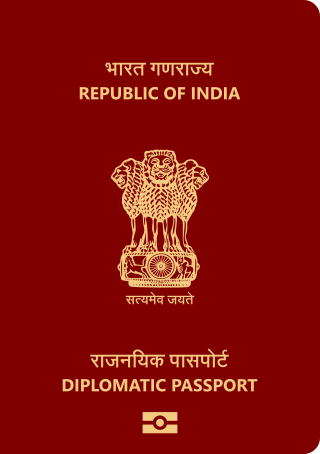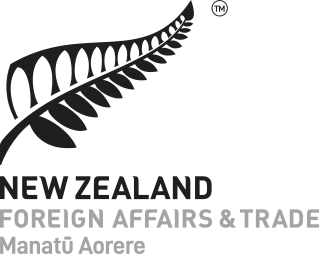Tania Billingsley sexual assault case
Alleged burglary and sexual assault
On 9 May 2014, Rizalman was arrested by the New Zealand Police after following a 21-year-old Wellington woman home and allegedly assaulting her. The following day, he appeared in the Wellington District Court and was charged with burglary and intent to rape, which carry a ten-year prison sentence. Rizalman claimed diplomatic immunity and was allowed to return to Malaysia on 22 May 2014. While the New Zealand Government has asserted that it wanted Rizalman to remain in the country to face trial, miscommunication between Malaysian and New Zealand officials led the Malaysian Government to believe that the New Zealand Government would not object to repatriating Rizalman and trying him before a Malaysian military court. According to the Malaysian Foreign Minister Anifah Aman, the Malaysian Government was always willing to waive immunity and to allow Rizalman to be tried in New Zealand. Details of the case were not divulged to the general public until early July 2014. Following his return to Malaysia, Rizalman was checked into a Malaysian military hospital for psychiatric evaluation. He was also scheduled to face a military board of inquiry and potentially a court-martial. [11]
On 30 June 2014, the New Zealand Prime Minister John Key confirmed that an unidentified foreign diplomat had departed New Zealand following a police investigation into an alleged sexual assault that had occurred in Wellington in May 2014. The New Zealand Ministry of Foreign Affairs and Trade requested that the diplomat's home country waive his diplomatic immunity but the request was refused. [12] Following an Official Information request filed by Fairfax Media on 1 July 2014, the New Zealand Government released Rizalman identity and details of the case to the New Zealand public. The New Zealand Government also released documents which said that the Malaysian Government had refused to waive diplomatic immunity in the alleged rape case and had sought to have the charges dropped and the case sealed. This contradicted a statement by the Malaysian Foreign Minister Anifah Aman that New Zealand had allowed Rizalman to invoke his diplomatic immunity and to return to Malaysia. [13] [14] [15]
John Key also assured the Malaysian Government that Rizalman would receive a fair trial in New Zealand and that there was no danger to his life, stressing that New Zealand had already abolished the death penalty. [16] On 2 July 2014, the Malaysian Government confirmed that his government would return Rizalman to Malaysia to face charges. The New Zealand Police also confirmed that Rizalman was being charged with burglary and assault with intent, offences which carry a jail term of ten years. News reports of the Rizalman case in New Zealand sparked public criticism of the Fifth National Government for allowing the diplomat to return to his home country. Meanwhile, the Malaysian Government was criticised by the opposition and Malaysian activists for protecting an alleged rapist. [17]
On 9 July 2014, it was reported that the alleged rape victim, Tania Billingsley, had voluntarily waived her right to name suppression by appearing on the New Zealand television channel 3 News's 3rd Degree Program. She demanded that the Minister of Foreign Affairs Murray McCully apologise to her for the Government's handling of the case. The Ministry of Foreign Affairs and Trade was also criticised for mishandling the Rizalman case by sending the Malaysian Government confusing signals which gave the impression that the New Zealand Government was willing to allow Rizalman to return to Malaysia. This contradicted the Prime Minister's official position that Rizalman should face justice in New Zealand. John Allen, the Secretary of Foreign Affairs and Trade, also apologised to Billingsley on behalf of the Ministry. [18]
The right-wing New Zealand blogger Cameron Slater drew controversy within the New Zealand blogosphere for speculating on his blog Whale Oil that the alleged sexual assault case had resulted from a break-up between Rizalman and Tania Billingsley. Slater also criticised the Green Party MP Jan Logie for supporting Billingsley in her criticism of the Government's handling of the case. [19] In response, the left-wing blogger Martyn "Bomber" Bradbury criticised Slater for resorting to victim blaming. [20]
Extradition to New Zealand
On 3 October 2014, the New Zealand Government formally applied for Rizalman's extradition with the Malaysian authorities. The application was heard and granted by the Malaysian Sessions Court on 16 October 2014. [21] According to Prime Minister John Key, the extradition process was complicated by the lack of an extradition agreement between Malaysia and New Zealand but he also stressed that lawyers from both countries were working hard to speed up the extradition process. [22] On 24 October 2014, the Malaysian Foreign Ministry confirmed that Rizalman had boarded a Malaysia Airlines flight from Kuala Lumpur International Airport to Auckland on Friday morning. He was escorted by two New Zealand police officers and two Malaysian Defence Ministry officials. According to The Star newspaper, Rizalman had expressed his wish to voluntarily return to New Zealand. [6]
Legal proceedings
After an overnight stay in Auckland, Rizalman appeared in the Wellington District Court on 25 October 2014. His lawyer Donald Stevens, QC did not apply for bail and Rizalman was remanded in custody to reappear on 28 October 2014. The presiding Justice of the peace, Hewitt Humphrey, allowed the media to film and record the proceedings, but not the defendant. [23] [24] On 28 October 2014, Judge Arthur Tomkins granted Rizalman bail to a temporary, undisclosed location but imposed several restrictions including the surrender of his passport, an overnight curfew, not contacting the alleged victim Tania Billingsley, and travel restrictions. He was ordered to reappear the following week to formalise bail conditions. Judge Tomkins also granted the media permission to film and record Rizalman during the hearing. [25]
On 3 November 2014, Rizalman successfully applied to have his bail address changed at the Wellington District Court. Judge Bruce Davidson also extended the defendant's curfew hours from 10pm–7am to 7pm–7am. He reappeared in court on 26 November 2014 to enter a plea on the two charges of burglary and assault with intent to commit rape. [21] The Malaysian Deputy Foreign Minister, Datuk Hamzah Zainudin expressed his confidence that Rizalman would receive a fair hearing in New Zealand, stating that the two countries shared "clear and solid legal principles and processes." [26] On 21 November 2014, Rizalman pleaded not guilty to the charges he was facing. He elected for a trial by jury and returned to the Wellington District Court on 19 February 2015. [27] On 2 December 2014, Rizalman applied to have his bail conditions relaxed. This appeal was denied by the Wellington District Court on 3 December for reasons that were suppressed. [28]
On 19 February 2015, Rizalman made a brief appearance in the Wellington court where he was remanded for trial. He was scheduled to reappear in court in April 2015. [29] On 10 March 2015, several New Zealand news media reported that Rizalman was scheduled to be tried before the High Court in Wellington in November 2015. [30]
On 30 November 2015 Rizalman pleaded guilty to a charge of indecent assault. Related charges of assault and burglary were then dropped. [7] Following his guilty plea, Rizalman attended a disputed facts hearing on 4 December. During the hearing, Rizalman admitted defecating outside Billingsley's house and entering the building without his pants or underwear. However, he denied the Crown prosecutor Grant Burston's assertion that it was part of a black magic ritual to put a charm on her and claimed that he had to make an emergency toilet stop. In addition, Rizalman admitted that he was a long-time consumer of cannabis and had bought high-strength cannabis while stationed as a diplomat in New Zealand. His defence lawyer Donald Stevens also alleged that Rizalman's behaviour during that night was influenced by extenuating circumstances including mental illness, which was contested by the prosecution. [31] [32] [33]
On 15 December 2015, Justice David Collins accepted the Crown's contention that Rizalman had a sexual motive when following Billingsley to her Wellington home. In addition, the judge also ordered for a pre-sentence report and another report to assess Rizalman's suitability for home detention, which could be served at the Malaysian High Commission in Wellington. [34] On 4 February 2016, Rizalman was sentenced to nine months' home detention. He served his sentence at a house in Wellington instead of the Malaysian High Commission. [8] Rizalman's sentencing was criticised by the victim Tania Billingsley, who described it as a "kick in the guts". She also criticised the shortness of his home detention term and the lack of treatment for his sexual offending. [35]
On 4 November 2016, Rizalman was deported back to Malaysia after completing his sentence. [9]
Ministerial inquiry
As a result of the Rizalman-Billingsley case, the New Zealand Ministry of Foreign Affairs and Trade (MFAT) was criticised for allowing Rizalman to return to Malaysia rather than face charges in New Zealand. MFAT's handling of the case was the subject of a Ministerial Inquiry led by the former Treasury Secretary John Whitehead. [36] On 8 November 2014, it was reported that MFAT's Deputy Director of Protocol, Mary Oliver, had resigned from her job due to criticism from the Prime Minister over her handling of the case. [37] On 16 December 2014, John Whitehead's Ministerial Inquiry released a critical report which outlined 21 "specific recommendations for procedural changes designed to ensure that we have no repetition of these events." It was also reported that MFAT's Director of Protocol Caroline Bilkey had relinquished her position and reassigned as New Zealand's new Ambassador to Brazil. [36] On 5 February 2016, the Foreign Minister Murray McCully confirmed that these 21 procedural changes had since been fully implemented by MFAT. [38] A copy of the email from MFAT's protocol division that had been blamed for the confusion regarding Rizalman's return to Malaysia was also released on the news website stuff.co.nz. [39]

Diplomatic immunity is a principle of international law by which certain foreign government officials are recognized as having legal immunity from the jurisdiction of another country. It allows diplomats safe passage and freedom of travel in a host country and affords almost total protection from local lawsuits and prosecution.

Winston Raymond Peters is a New Zealand politician who has been serving as the 13th deputy prime minister of New Zealand since November 2023, his third time in the role. He has been leader of New Zealand First since he founded the political party in 1993. He was re-elected for a fifteenth time at the 2023 general election, having previously been a member of Parliament (MP) from 1979 to 1981, 1984 to 2008 and 2011 to 2020. Peters also serves as the 25th minister of foreign affairs, 8th minister for racing, and 29th Minister for Rail.
Ahmed Zaoui is an Algerian refugee. He arrived in New Zealand on 4 December 2002 where he sought refugee status. Objections from the Security Intelligence Service were withdrawn in September 2007, allowing him to remain in New Zealand. He was granted New Zealand citizenship in 2014.

Kim Dotcom, also known as Kimble and Kim Tim Jim Vestor, is a Finnish-German Internet entrepreneur and political activist who lives in Glenorchy, New Zealand.

Timothy John Groser is a New Zealand former politician and diplomat. A member of the New Zealand National Party, Groser was a Member of Parliament between 2005 and 2015. He held the offices of Minister of Trade, Minister of Conservation, and Minister for Climate Change in the Fifth National Government.
Russell McVeagh is a New Zealand law firm with offices in Auckland and Wellington. It is one of New Zealand's largest law firms and is ranked highly by law firm ranking guides such as The Legal 500 and Chambers and Partners.

The Ministry of Foreign Affairs and Trade (MFAT) (Māori: Manatū Aorere) is the public service department of New Zealand charged with advising the government on foreign and trade policy, and promoting New Zealand's interests in trade and international relations.

Israel–New Zealand relations are the foreign relations between the State of Israel and New Zealand. While Israel has an embassy in Wellington, New Zealand's embassy in Ankara, Turkey is accredited to Israel. Diplomatic relations between the two countries date back to January 1949. New Zealand has exported a mixture of agricultural and manufactured goods to Israel. In return, Israel has exported a range of manufactured goods to New Zealand. Bilateral relations between the two countries have been complicated by issues such as the 2004 Israel–New Zealand passport scandal, United Nations Security Council Resolution 2334, and the Israel-Palestine conflict.
Immigration New Zealand, formerly the New Zealand Immigration Service (NZIS), is the agency within the New Zealand Ministry of Business, Innovation and Employment (MBIE) that is responsible for border control, issuing travel visas and managing immigration to New Zealand.
Babar Ahmad is a British Muslim of Pakistani descent who spent eight years in prison without trial in the United Kingdom from 2004 to 2012 fighting extradition to the United States. The US accused him of providing material support to terrorism via a website that he set up in the UK in 1996 to publish stories about the conflicts in Bosnia and Chechnya, but which in 2000–2001 allowed two articles to be posted on the site offering support to the then Taliban government in Afghanistan. The US accepted that the website was operated from the UK but claimed jurisdiction because one of the servers hosting the website was located in the US. He fought a public eight-year legal battle, from prison, to be tried in Britain but the British Crown Prosecution Service concluded that there was "insufficient evidence to prosecute" him.

New Zealand–Russia relations are the bilateral foreign relations between New Zealand and the Russian Federation. New Zealand has an embassy in Moscow and an honorary consulate in Vladivostok. Russia has an embassy in Wellington. Both countries are members of APEC. Due to the 2022 Russian invasion of Ukraine, relations became very tense after New Zealand imposed sanctions against Russia. Russia placed New Zealand on a list of "unfriendly countries", along with South Korea, the United States, European Union members, NATO members, Australia,Singapore, Japan,Switzerland, Micronesia, Taiwan and Ukraine.

Malaysia–New Zealand relations refers to foreign relations between Malaysia and New Zealand. Malaysia has a High Commission in Wellington, and New Zealand has a High Commission in Kuala Lumpur. Both countries are full members of the Commonwealth of Nations and Malaysia is important to New Zealand for strategic, political and economic reasons, with both countries' leaders were engaged in frequent visits to boost their relations.
Marylands School was a residential school for boys with learning difficulties originally located in Hall's Road, Middleton from 1955, and from 1966 at Nash Road, Halswell, Christchurch, Aotearoa New Zealand. It was run by the Roman Catholic order Brothers Hospitallers of St. John of God. Sexual abuse at the school from the 1970s came to public attention in the 2000s, and survivor testimony was recorded as part of the Royal Commission of Inquiry into Abuse in Care (2018-2023).

Crime in New Zealand encompasses criminal law, crime statistics, the nature and characteristics of crime, sentencing, punishment, and public perceptions of crime. New Zealand criminal law has its origins in English criminal law, which was codified into statute by the New Zealand parliament in 1893. Although New Zealand remains a common law jurisdiction, all criminal offences and their penalties are codified in New Zealand statutes.
The Anwar Ibrahim sodomy trials are a source of considerable political controversy in Malaysia. The first trial was held in 1998, and resulted in former Deputy Prime Minister Anwar Ibrahim being convicted, and given a nine-year prison sentence. This verdict was overturned in 2004, resulting in Anwar's release from prison.

Ian Alexander Hill was a New Zealand diplomat with the New Zealand Ministry of Foreign Affairs and Trade (MFAT). He was the New Zealand Ambassador to Russia, having previously served in that position from 2009 to 2012.
John Allen is a New Zealand public servant. From 2009 to 2014 he served as chief executive of the New Zealand Ministry of Foreign Affairs and Trade. He was the acting Administrator of Tokelau from 2009 until 2011.

Paul Ayers Robert Foster-Bell is a former New Zealand diplomat, a politician and was a list member of the House of Representatives between May 2013 and 2017 for the National Party. While he failed to win the party's nomination for the Whangarei electorate in March 2014, he remained in Parliament as a list MP for the following term.
Graham McCready is a retired New Zealand accountant, known for successfully taking a private prosecution against MP Trevor Mallard.
Gerard van Bohemen is a New Zealand judge and a former Permanent Representative of New Zealand to the United Nations (UN) in New York.










